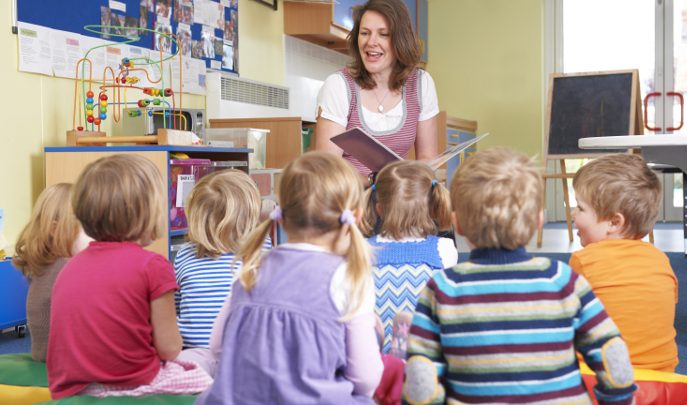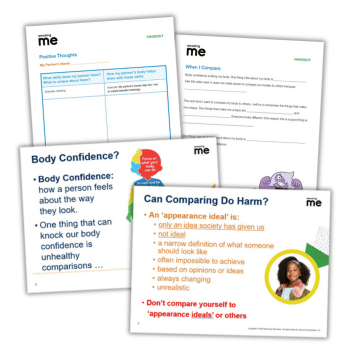Supporting Children To Form Relationships With Their Peers Is A Vital Part Of A Key Person’s Role

Even for small babies, friendships are very important, says Stephanie Mathivet

The importance of children’s relationships with each other cannot be underestimated. They are important for social and emotional development as children learn skills such as sharing, taking turns and being considerate towards one another. Through making friends, children have play partners to explore ideas, roles and the world around them. In this way children’s friendships are also important for language development, thinking and seeing another’s viewpoint.
Many children long for friends, with whom they can share the landscapes of childhood, and who can at times elicit feelings ranging from passionate adoration to intense dislike. Moreover, friends can be helpers for learning in many ways.
They support each other to gain new skills or practise existing ones, explore experiences and share new understandings about the world together. Older children, especially within the family, do so much to support a younger child’s learning – teaching them to play a board game or acting as a reading role model or helper. Younger children aspire to do things that an older or more experienced child can do.
Becoming part of a key group
Being part of a key group is a first step towards a new child becoming part of a larger group of children, especially where a setting is open plan, has vertical (across ages) or horizontal (single age) grouping.
If a child starts with a small group – their key group – it helps the child to start to make sense of all the different faces they see, as well as learn to recognise some and make friends. Every child needs to have a sense of belonging in the setting, and belonging to their key group is a step on the way.
Key group times are periods set aside for a key person to spend with their key group. It is not an activity time, nor is it a snack or story time, although the latter can be woven in. It is simply time to be together with the focus on wellbeing, and to tune in to how each child is feeling at that moment.
Key group time provides an opportunity to think about how child A and child B have been resolving disputes today, or how another child who was unwell yesterday is feeling today. It is a time to show interest and concern in what is going on for that child, such as a new baby at home, or Granny visiting.
It is important to remember that what an adult or older child takes for granted can cause anxiety to a younger child. Talking about who is in today and where someone is, if they are not there, can help a young child cope with the comings and goings in the environment and feel less anxious about it.
The emphasis of key group time is awareness of others, feeling safe and belonging. It is a time for relaxing together, without worrying about the next activity or whether it is packing away time.
Learning through relationships
Even for small babies, friendships are very important. Seeing and recognising familiar smiling faces can take the edge off separation anxiety, as well as helping a baby or young child feel they want to go to nursery, so that they can see their friends.
The key person brokers these early friendships, observing who each baby enjoys seeing, perhaps sitting them near each other or placing their cots alongside so that they can see each other when they wake after a sleep. Observing babies play together helps a key person to appreciate how babies initiate interaction with another baby and just how complex and interesting the communicative play can be.
The provision of part-time places can disrupt the continuity of play partnering if, for example, the child’s closest friend on Monday or Tuesday is not in for the rest of the week or there are changes within the day as well.
Flexibility may suit parents’ needs for specific hours of childcare, but children need stability and continuity too, so the arranging of part-time places needs to be managed carefully. Children’s friendships are too important to be placed at the bottom of the agenda.
Friends can help ease transitions too. Knowing who will be moving up to the next group and pairing up with a ‘buddy’ can help ease that transition – even more so when moving on to school. Children are usually very keen to know who else will be going to their school, where other friends are going and if they will be able to see them again.
PARTNERS IN PLAY
Close peer relationships support children in extending their understanding of the world
• Through their friendships children share ideas, test out new theories or understanding, gain inspiration and develop creativity. Close friends become play partners. For a child, a play partner is someone who can share and step into their world, who understands their intention as she understands theirs.
• This understanding of the other person’s thoughts, perhaps predicting what they will like – or even be annoyed by – is the basis of imaginary play, which helps children develop a theory of mind: the understanding that another person’s thoughts, feelings and perception of the world may be different from their own.
• Play partners cooperate together to construct an imaginary world in which they play as if they were someone else. They are informed in this play by their experience of the real world, of being in a family, of going to the shops or sitting in a cafe. They take on the persona of the people in those situations and act them out in their play.
REFLECTING ON PRACTICE
Ask yourself:
• Can you remember your friendships at nursery or primary school? Did you have a best friend? Are you still in contact with your earliest friends?
• What was important about those friendships? What did you like to play?
• Can you think about what you may have learned through your play?
Stephanie Mathivet is a former curriculum and standards manager at the Pre-school Learning Alliance. This article is an edited extract from Stephanie’s book Being a Key Person in an Early Years Setting (Pre-school Learning Alliance, 2015). Browse resources for International Friendship Day.











